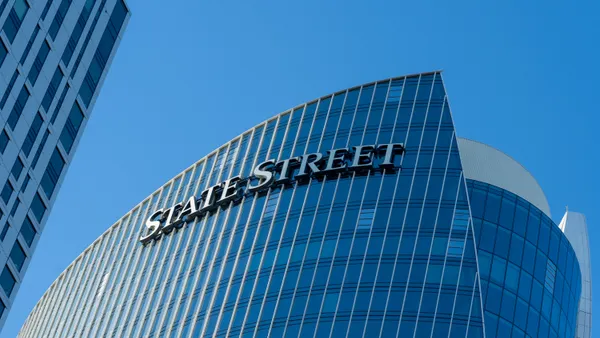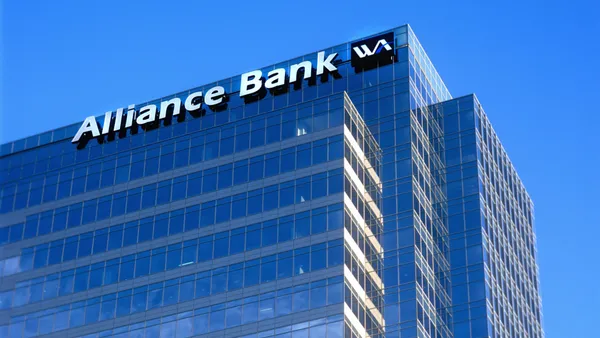Dive Brief:
- Barclays will stop financing operators of private prisons, the London-based bank said in a statement Wednesday.
- Barclays, which has partnered with Florida-based for-profit prison company Geo Group Inc. since 2001, joins a number of other major banks that have made similar announcements in recent months.
- The bank was a lender to Geo Group's $900 million credit facility, which expires in May 2024, according to Bloomberg. Barclays said it intends to allow the facility to expire in due course and does not plan to enter any new financing agreements with companies in the industry.
Dive Insight:
Barclays' latest announcement follows other large financial institutions that are divesting themselves from the industry. It is part of a larger trend of banks increasingly making business decisions related to social issues.
Bank of America, JPMorgan Chase, Wells Fargo and SunTrust have released similar statements as the increase in activity along the U.S.'s southern border continues to bring attention to immigrant detention centers and the banks that finance them.
"I think we certainly live in a more transparent time. I think that the financial industry has been under a microscope since the financial crisis," Pen Pendleton, a partner at CLP Strategies specializing in communications and media relations for the banking industry, told Banking Dive. "Today, I think the reputational risks are much more visible to shareholders, customers, regulators and all stakeholders."
In a statement, Geo Group said Barclays' decision is "based on a false narrative and a deliberate mischaracterization" of its role as a government services provider.
"It's unfortunate that misleading political activism has been allowed to impact decade-long banking relationships," the company told Banking Dive. "Like all Americans, we are concerned about the unprecedented humanitarian crisis at our Southern border; we acknowledge the challenge, but we are appalled by the historically and factually inaccurate portrayal of our facilities."
Lawmakers are taking notice of the trend. During a House Financial Services Committee hearing last week on BB&T and SunTrust's proposed $66 billion merger, Rep. Sean Duffy, R-WI, accused SunTrust of taking a social stance by distancing itself from the private-prison industry.
"We're not taking a social position," SunTrust Chairman and CEO William Rogers said, adding that the bank considers a variety of factors when reaching its conclusions.
"You should bank anyone who follows the law," Duffy said.
Pendleton said it's an issue with which all industries, not just financial services, are grappling.
"When do public purpose responsibilities outweigh business and contractual obligations? The dilemma is: How to do business in a world that increasingly requires prejudging the virtue of customers?" he said.
Pendleton said he thinks opioid manufacturers and distributors may be another demographic that banks decide to spurn.
"It'll be a customer-by-customer, company-by-company, borrower-by-borrower discussion," Pendleton said. "I don't think that [banks] are going to want to get out of the pharmaceutical financing business."
There are reputational advantages to be gained by promoting lending to certain industries, like alternative energy, Pendleton said.
"I think you're going to see many more banks positioning themselves as partners to environmental and sustainable commercial activities," he said.












